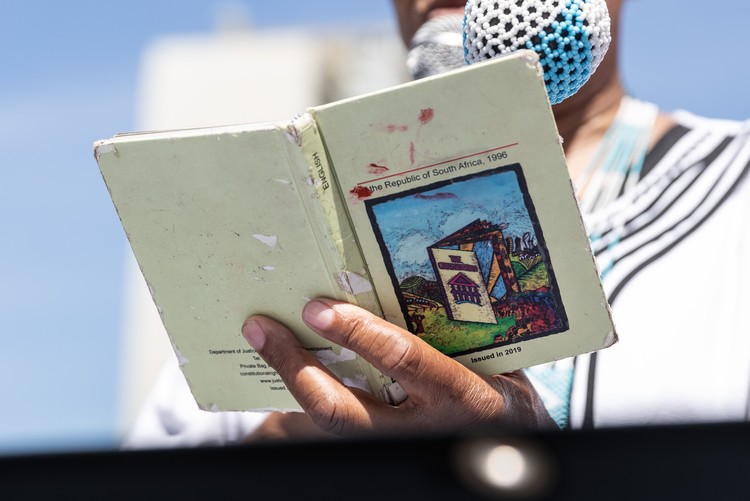
13 December 2024
Blind and visually impaired people have the right to convert protected works to accessible formats without having to obtain permission, the Constitutional Court has ruled. Archive photo: Ashraf Hendricks
The Constitutional Court has come to the aid of blind and visually impaired people. On Friday the court handed down an interim order which again gives them legal protection to convert copyright protected works into accessible formats without having to obtain permission.
The unanimous court said it would give its reasons later.
It said it deemed a further “reading in” to the existing Copyright Act - again entrenching the rights of visually impaired people - as being “just and equitable relief”.
It has been two years since the court ruled that sections of the Act were unconstitutional and trampled on the rights of blind people. The court then ordered “a reading in” of the existing act as an immediate solution.
But it suspended the declaration of invalidity for two years to give Parliament time to remedy the defects through the introduction of a new Copyright Amendment Bill (CAB).
But that Bill has been held up in President Cyril Ramaphosa’s office after his legal advisors raised concerns about the constitutionality of certain sections, unrelated to blind and visually impaired people.
The “reading in” then lapsed. And the protections given to blind and visually impaired people fell away.
SECTION27, acting for Blind SA, then approached the court again.
Zeenat Sujee, attorney at SECTION27, said in her affidavit in that application, which was argued last month, that their clients needed urgent relief.
She noted that the President had now also approached the court to rule on the constitutionality or otherwise of the amendment bill.
She said even if that ruling was made quickly, the bill could be referred back to the National Assembly in a process which could take as long as four years.
“Whatever happens in the referral proceedings, this much is clear: without obtaining the substantive relief sought in this application, and for as long as the CAB does not become law, persons with visual and print disabilities will continue to be denied their fundamental rights,” she said.
She said this would mean that the Constitutional Court’s decision in 2022 would be “little more than a pyrrhic victory”. This could not be justified.
On Friday, the court said its order would remedy the “lacuna” that resulted from the expiry of the suspension of the declaration of constitutional invalidity and the “reading in”. In contrast to the ruling two years ago, there is no time period for the “reading in”. Friday’s interim order will stand “pending the finalisation of the matter”. This means that it will remain in force until the court has handed down its final judgment and order in Blind SA’s matter.
While initially the court had indicated that both Blind SA and the President’s referral of the amendment bill would be heard at the same time, it later changed its directions and the referral will only be heard next year.